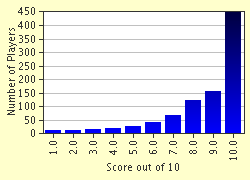Quiz Answer Key and Fun Facts
1. What would you be telling your neighbor in this handy sentence?
Je vous demande pardon, mais vos oisons sont en train de déraciner mes pétunias. Si cela continue, ils aboutiront dans le foie gras!
2. What would the English equivalent be of this French sentence? 'Regarde, cheri! La cigogne nous a apporté un bébé qui s'appelle Popeye. Il y a un mot attaché qui dit, 'épinards s'il vous plait'!
3. If you get this card in French, what do you think it means? Le ciel est bleu et le soleil est magnifique! Comme tu me manques!
4. And poor Alphonse, how would you translate his wishes in English? Alphonse avait toujours revé de faire un voyage en Amazonie à bord d'un radeau.
5. Les enfants se sont mis à rire quand la maitresse a glissé sur la peau de banane. How would you say that in English?
6. What is the closest English to this? Nous avons entendu hurler le loup pas très loin de notre abri, et, puisque la lune était pleine, j'avais soudain envie de chercher mon rasoir juste au cas où...j'en aurais besoin pour me raser le cou!
7. If the village kids are singing this little rhyme, what are they saying in English?
Méchante vieille alouette, tu n'es vraiment pas très chouette!
Va-t'en d'ici ou je te fouette!
8. What was the surprise in this sentence ? Soudain, que vois-je ? Une colombe qui avait fait son nid dans mon chapeau de paille !
9. What is this in English? 'Savais-tu qu'il y avait du jaune d'oeuf sur ta cravate?"
10. What would this be in English? 'Je vais t'aimer, comme personne ne t'a aimé, que vienne la pluie ou le soleil.'
Source: Author
Bruyere
This quiz was reviewed by FunTrivia editor
bloomsby before going online.
Any errors found in FunTrivia content are routinely corrected through our feedback system.

